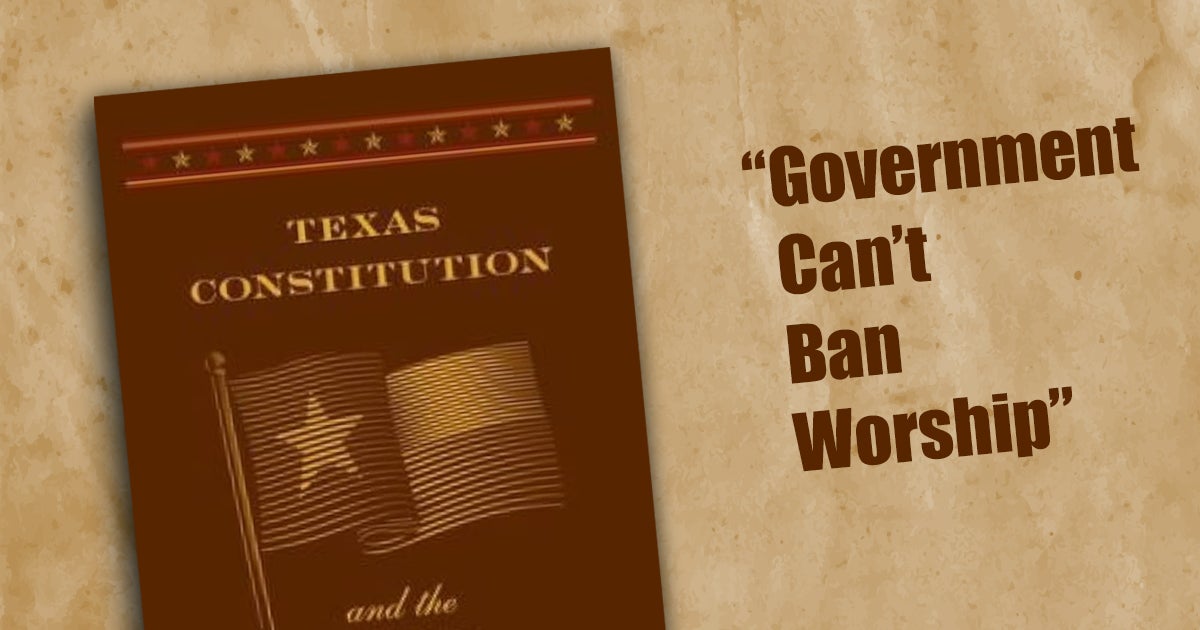
by Jorge Gomez • 2 minutes
First Liberty and the law firm Lehotsky Keller Cohn recently filed a friend-of-the-court brief at the Texas Supreme Court providing interpretation of a new provision of the Texas State Constitution barring the government from prohibiting or limiting religious services.
Texans adopted the provision in response to restrictions imposed by state and local governments during the COVID pandemic. That means the state, for example, can’t issue a proclamation limiting in-person worship services to fewer than 25 persons and cities can’t issue decrees banning singing during worship services.
“After being subjected to vast government overreach during COVID, Texans made clear that they do not want the government shutting down religious services,” said Hiram Sasser, Executive General Counsel at First Liberty. “We want to make sure the Texas Supreme Court understands the importance of this new provision.”
“The Texas Constitution protects the right of religious organizations to operate without government interference,” said Josh Morrow, Counsel at Lehotsky Keller Cohn. “The people of Texas enshrined Section 6-a into the Texas Constitution to make explicit that the government may not suspend the foundational free-exercise right to religious services irrespective of any governmental interest it may invoke.”
The brief was filed in Perez v. City of San Antonio. The Texas Supreme Court will hear the case on December 4. It involves Gary Perez and Matilda Torres, two members of the Native American Church who sued to stop one of the city’s park renovation projects, which include removing trees and bird habitats.
At the core of this case is a religious liberty question: Perez and Torres argue that part of the area the city seeks to renovate is considered a sacred Indigenous worship space. They maintain that, as members of the Lipan-Apache “Hoosh Chetzel” Native American Church, the Blue Hole spring at the river’s headwaters and the Lambert Beach area of Brackenridge Park are fundamental to their ability to practice their faith.
The lawsuit alleges that the city’s effort violates the First Amendment rights of Native American peoples to practice their religion. They also claim that the city is in violation of the Texas Constitution.
“It is important for us to understand the beliefs at play here,” said John Greil, a University of Texas School of Law professor and an attorney representing Perez and Torres. “They believe that for thousands of years the trees at this site have provided a generation-to-generation connection, so severing that will prevent the site from serving their religious purposes.”
Greil said that what the City of San Antonio is similar to removing an altar from a Catholic church, stating that for Perez and Torres and those they worship alongside, these specific trees and these specific birds are directly tied to the sacredness of this space.
The main question before the Texas Supreme Court is whether Article 1, Section 6 imposes “a categorical bar on any limitation of any religious service, regardless of the sort of limitation and the government’s interest in that limitation.”
Our brief argues that the answer is “Yes.” Our attorneys explain that the text and context of the provision invite no exceptions. Under the current provision, the government is categorically barred from limiting any aspect of a religious service.
Read More:
San Antonio Express: Tree removals at Brackenridge Park target of Indigenous group’s lawsuit against San Antonio project
Deceleration News: Texas Supreme Court to Take Up Religious Liberty Question on Brackenridge Park Lawsuit